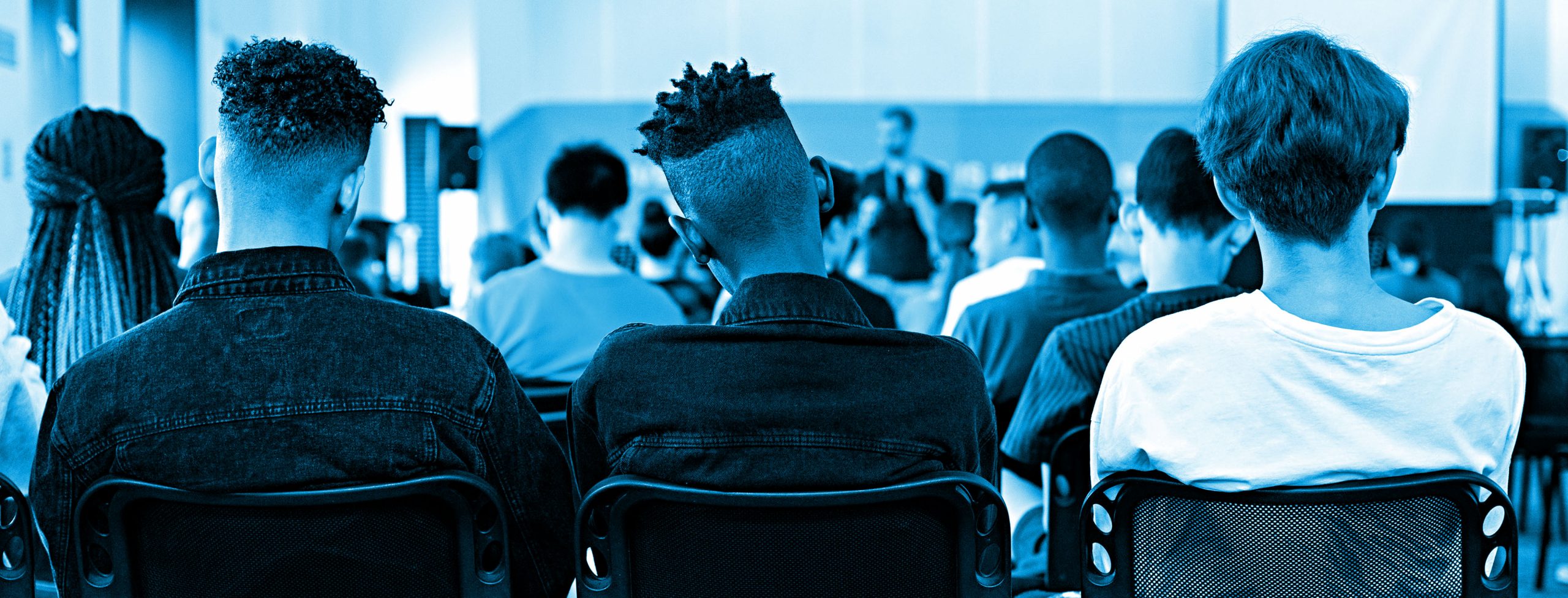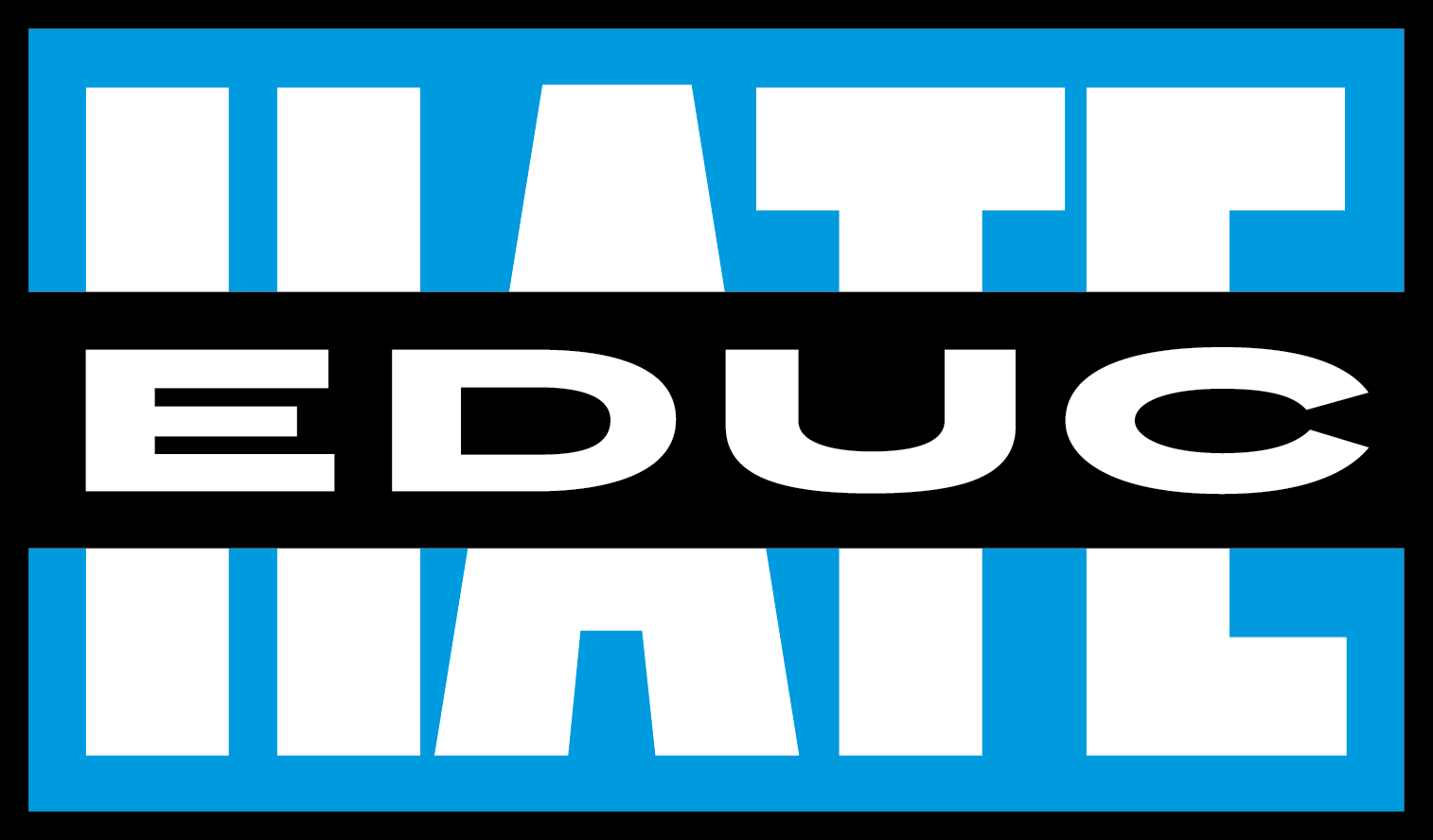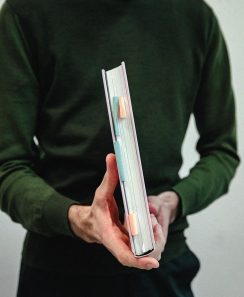
Here you will find support materials (e.g., fact sheets, reading recommendations) on hate crime and online hate speech; about the phenomenon of the Bystander Effect, as well as information about other entities and projects that work in this area.
O que entendes por discriminação
Discriminação na voz da comunidade da Universidade do Porto - Briefing Series
Porque é que existe discriminação
Discriminação na voz da comunidade da Universidade do Porto - Briefing Series
Já alguma vez testemunhaste uma situação de discriminação
Discriminação na voz da comunidade da Universidade do Porto - Briefing Series
Quais são as consequências da discriminação
Discriminação na voz da comunidade da Universidade do Porto - Briefing Series
De acordo com a tua experiência, quais são os tipos de discriminação mais frequentes
Discriminação na voz da comunidade da Universidade do Porto - Briefing Series
O que entendes por discurso de ódio
Discurso de ódio na perspetiva da comunidade da Universidade do Porto - Briefing Series
Porque é que existe o discurso de ódio
Discurso de ódio na perspetiva da comunidade da Universidade do Porto - Briefing Series
Já alguma vez testemunhaste uma situação de discurso de ódio
Discurso de ódio na perspetiva da comunidade da Universidade do Porto - Briefing Series
Quais são as consequências do discurso de ódio
Discurso de ódio na perspetiva da comunidade da Universidade do Porto - Briefing Series
De acordo com a tua experiência quais são as motivações mais frequentes no discurso de ódio
Discurso de ódio na perspetiva da comunidade da Universidade do Porto - Briefing Series
Na tua opinião, qual é a solução para erradicar o discurso de ódio
Discurso de ódio na perspetiva da comunidade da Universidade do Porto - Briefing Series
SeguraNet's Hate Speech Tab
The SeguraNet Awareness Centre, under the responsibility of the Directorate-General for Education (DGE), has the mission of promoting Digital Citizenship and Media Education in Schools. It includes pedagogical tools, namely in terms of digital literacy, and education for human rights and against hate speech.
Safe internet hotline - an important resource for help requests and reports to be publicized
The Portuguese Association for Victim Support is the entity that coordinates the Safe Internet Line, a service provided by the Internet Segura Center that includes clarification and support for citizens, and a service for reporting illegal online content (namely, Content of Sexual Abuse of Minors). , Apology for Racism, Apology for Violence). The Safe Internet Line operates on weekdays from 8:00 am to 10:00 pm.
Hate Base - service created to help organizations and online communities detect, monitor and analyze hate speech
Hatebase was created to help companies, government agencies, NGOs and research organizations moderate online conversations and potentially use hate speech as a predictor of regional violence.
Movement Against Hate Speech – Youth for Human Rights online
The Movement Against Hate Speech – Young People for Human Rights online was a campaign by the Youth Sector of the Council of Europe, which ran until the end of 2017, carried out by young people and with young people, online and offline.
European Hate Speech Observatory - Movement Against Hate Speech
In the Observatory you can: find content created by registered users; report situations, denounce (in any language); create tags (definitions, information, thesaurus); know what is the monthly focus/theme proposed by the moderators.
UNI-FORM – international report platform
Online platform in the EU to bring LGBTI NGOs and their national security forces directly into contact for a joint work and effort to increase the number of complaints and combat hate crimes and online hate speech against LGBTI people.
SELMA - Social and Emotional Learning for Mutual Awareness
The SELMA project (Social and Emotional Learning for Mutual Awareness) is coordinated by European Schoolnet, together with a number of European partners, including Portugal. The resources of the SELMA project are intended to support all those who, working directly with children and young people, promote initiatives aimed at eliminating hate speech online.
"Racism and Xenophobia in Portugal: the normalization of hate speech in the public space of the internet"
"Racism and Xenophobia in Portugal: the normalization of hate speech in the public space of the internet" is a project about hate speech with racist motivation.
Better internet for kids
The Better Internet for Kids portal provides information, guidance and resources on better internet issues from the joint Insafe-INHOPE network of Safer Internet Centers in Europe and other key stakeholders.
Hate Destroyer Mural - Finland
The aim is to challenge hate speech in the form of graffiti on a wall, transforming messages and images into a new and positive space for creativity and expression of love. Campaign activists produced a common anti-hate artwork together with the “Hate Destroyer” initiative, Finnish artists and the festival crowd. Offensive and racist symbols disappeared as thousands of festivals left their messages of support for equality and approval on the anti-hate wall. The action was backed by German hate-monger Irmela Mensah-Schramm, who spent years removing or revising every piece of graffiti, sticker and poster inciting the discrimination or hatred she encountered in Berlin.
Le BIJomaton: Combating hate speech against refugees with messages of hope - Belgium
This project aims to raise awareness of human rights, especially the right to asylum and the need to respond to hate speech against asylum seekers. A series of video interviews with activists, youth workers and youth were recorded in a hut and posted online on 20 June 2016, the European Day of Action on Refugee Rights. Five questions were asked with a maximum of 30 seconds to answer each question (Is being an asylum seeker...? How can you combat hate speech online?).
The Living Library: A personal way to say no to hate - France
This project brings together opposition to hate speech and neo-Nazism, challenging stereotypes and prejudices and discovering that despite differences, people share a common humanity, with similar concerns and hopes. The Parliamentary Assembly of the Council of Europe (PACE) and the Council's Youth Department organized a Living Library on 30 September and 1 October 2014 at the Council of Europe in Strasbourg, France. A living library works like a conventional one: “readers” can borrow a “book” for 20 minutes, with the difference that books are people. In this case, the “books” were victims of racist violence and hate speech (in particular, refugees and gypsies), members of associations active in the fight against extremism, anti-Semitism, racism and homophobia, as well as former neo-Nazis, who provided personal testimony.
First aid agaisnt hate: using satire and humour - Germany
The aim is to raise awareness of online hate speech through satirical memes and videos, encourage young people to get involved in combating online hate speech, and support young people through a network of organizations. The campaign developed photos, videos and satirical games, such as “Hate Speech Bingo”. The site offers information on the legal framework that regulates hate speech in Germany.
Invisible Heroes: Theatre to Challenge Hate - Hungary
This project aims to provoke counter-actions and counter-narratives to hate speech and celebrate the power and bravery of human rights defenders and their counter-narratives to hate. Using the methodology of invisible theater, a social experiment was carried out: hate speech crimes were simulated in a public space and passersby had to react to them. In the end, the players revealed themselves and the purpose of the “show”, and gave positive feedback to those who had made a defense or tried to help.
Invisible Heroes: Don't judge at first sight! - Hungary
The objective is based on deconstructing stereotypes, raising awareness of prejudices and using forms of artistic expression (photo exhibition) to reach a wider audience. A professional photographer took pictures of different members of a small community, a city of 30,000, from two perspectives. The people portrayed in the project were recognized in their community for their special characteristics, often seen by the public in a stereotyped way, for example, “dumb blonde”, “tattooed thug” or “the gypsy”. The photo series showed them first with their “stereotypical look” and again with a genuine look, showcasing their real personalities, something that is a hidden part of the iceberg. The images were shown to the public as part of an exhibition in Orosháza and several other cities.
No Hate Ninjas
This project aims to combat hate speech with art, humor and love speech. This project developed videos, poster materials and memes to challenge the viewer to question oft-heard arguments that fuel hate speech. The project started in October 2013 in Lisbon with a creative writing workshop and a meeting where the idea of the No Hate Ninjas came about. Project participants decided to post a meme with a message against hate speech every day for a month, starting on November 9, 2013, the European Day of Action against Fascism and Anti-Semitism. After its success, an exhibition of posters of the memes was organized; He toured Portugal in 2014-2015 and six European countries.
No Hate Speach Video Contest - Spain
The objective is to promote the participation and mobilization of young people in the defense of human rights. A video contest was organized (May 21 to June 30, 2014). Young people aged 15 to 29 were invited to create and submit their own one-minute video via the campaign's web site in Spain www.nohate.es. The creators of the 10 most voted videos won a tablet. In total, 27 videos were produced. The idea of the video contest was to show that anyone who wants to can actively participate and propose ideas. Making the videos allowed young people to express their opinions and engage directly with the campaign.
CineForum: Counteering Hate Speech through Film - Europe
This project aims to raise awareness and facilitate dialogue on hate speech through films and debates. A series of films was shown, followed by a discussion on various topics. This activity was organized on the occasion of the Campaign's Action Days.
Debunking Myths About Jews - Europe
The aim is to debunk some common and contemporary myths about Jews to combat anti-Semitism. As anti-Semitism is on the rise in Europe, a leaflet is used in educational and awareness-raising activities to debunk some of the most common myths and misconceptions about Europe's Jewish populations.
Look Beyond Borders experiment and video: 4 Minutes of Eye Contact - Europe
This project aims to break down barriers between newly arrived refugees and Europeans. A social experiment and a video based on the theory that four minutes of uninterrupted eye contact increases intimacy. Amnesty International Poland and Polish advertising agency DDB & Tribal applied the theory, developed by psychologist Arthur Aron in 1997, to the refugee crisis, accommodating refugees from Syria and Somalia in front of people from Belgium, Italy, Germany, Poland and United Kingdom, with extremely positive results. It was filmed in Berlin in April 2016.
Exit Project: Frushuset - Sweden
The aim is to help young people leave Nazi, racist or other extremist movements. In this project, young people receive help from both professional social workers and people who have left the Nazi movement. "Exit" offers everything from just hearing their stories to helping them create a new life. The organization also educates schools, authorities, police, correctional system, social workers and parents on how to deal with Nazism/racism. The project also helped authorities in Germany to start a similar project and has a wide network of professional contacts around the world.
Global Mentors: a project by Serve2Unite - Denmark
The project aims to alert young people about the dangers of violence as a means of political change, guide young people at risk and support them to become agents of peace and connect young people around the world, demonstrating interdependence and common humanity. Serve2Unite has a global mentoring program to support young people to become peacemakers. Søren Lerche is a project manager and educator from Denmark who uses his experience as a former left-wing violent extremist to engage with at-risk youth in international gang intervention and prevention efforts.
The Forgiveness Project - United Kingdom
This project aims to use narrative to explore how ideas around forgiveness, reconciliation and conflict resolution can be used to positively impact people's lives, through personal testimonies from victims and perpetrators of crime and violence.
The Hater
Netflix movie. "A sly young man finds success in the murky world of social media smear tactics, but his virtual schemes soon have real consequences."
The Social Dilemma
Netflix documentary exploring the dangerous impact of social media on people, with tech experts sounding the alarm over their own creations.
Hate Speech
This video was prepared by the IPDJ as part of its activities as a member of the Internet Segura Center. Launched on the occasion of the celebration of Safer Internet Day, February 9th. It describes hate speech, motivations, fake news as its origin, how it is disseminated, how to recognize hate speech and how to intervene.
REFERÊNCIAS - Manual para o Combate do Discurso de Ódio Online através da Educação para os Direitos
This Manual, designed for action with young people between the ages of 13 and 18, constitutes a relevant resource for pedagogical action in the context of combating hate speech and promoting Human Rights. Created by the Council of Europe to support the Campaign “Movement Against Hate Speech – Young People for Human Rights Online”, it includes activities that can be adapted to other audiences and be used in school as well as in non-formal education contexts. The Portuguese version, edited by the Calouste Gulbenkian Foundation, includes recent information on the aforementioned Campaign, as well as on the Council of Europe's “Guide to Human Rights for Internet Users”.
Manual ALTERNATIVAS - Agir contra o discurso de ódio através de contranarrativas
Handbook conceived within the framework of the Movement Against Hate Speech, a Council of Europe Youth Campaign Against Hate Speech online. Its objective is to consolidate the set of tools for youth technicians, educators and activists who work in the area of Human Rights or who want to get involved.
Referencial de educação para os media "Talvez não seja mais fácil... fazê-lo notar"
The Portuguese Media Education Framework, a guiding document for the implementation of Media Education in a school context, was approved in 2014. What path has it taken since its publication? Today, is this Reference part of the reality of Portuguese schools? What path still needs to be taken?
Manual de Sobrevivência ao Troll
Educational handbook on trolls - people who use the internet to purposely cause interruptions and/or conflicts through their communicative behavior.
Guia dos Direitos Humanos para os Utilizadores da Internet
The Council of Europe created the Human Rights Guide for Internet Users: a useful tool to better understand the possibilities, risks and benefits of using the Internet. It also addresses other areas, such as freedom of expression and information, education and literacy, child protection and access and non-discrimination.
Together against Hate Speech: How do We Fight Online Hate Speech
Informative video of the #nohatespeech movement. It describes hate speech, the role of social media and how to intervene.




